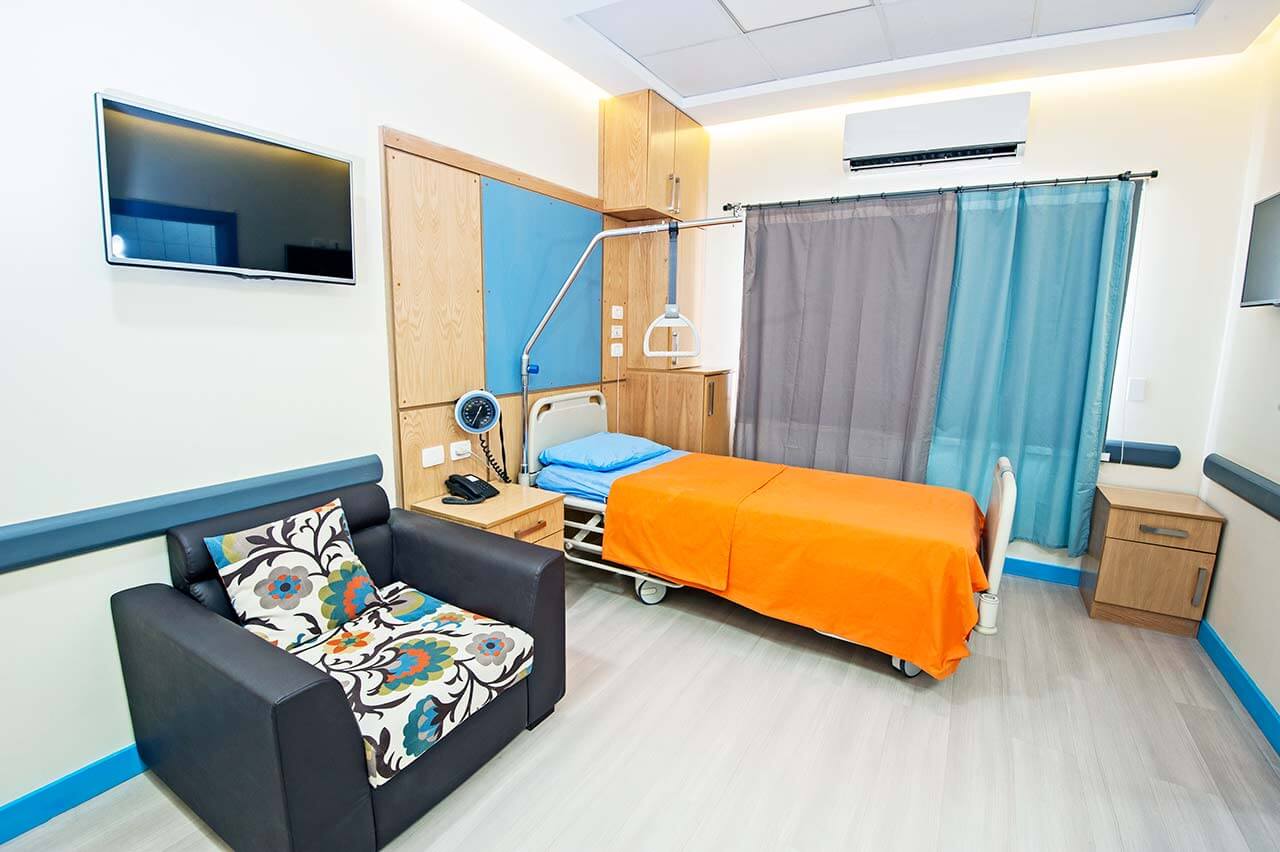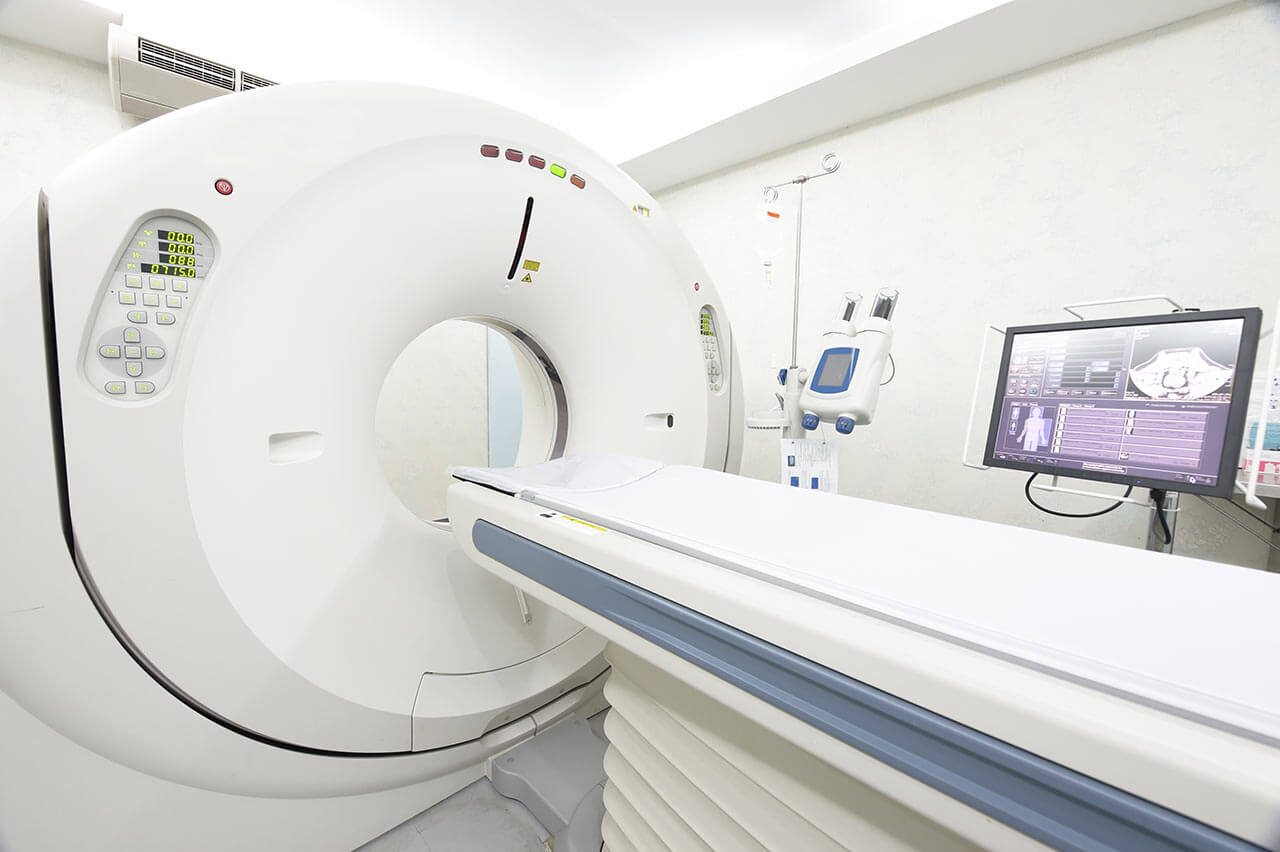
The program includes:
- Initial presentation in the clinic
- clinical history taking
- review of medical records
- physical examination
- laboratory tests:
- complete blood count
- biochemical analysis of blood
- Lipid metabolism (HDL/LDL, cholesterol,
triglycerides Lip(a), homocysteine) - blood coagulation analysis (aPTT, PT, INR)
- inflammation indicators (CRP, ESR)
- metabolic status (uric acid, total glucose, HbA1c)
- cardiovascular disease risk markers
- kidney function test (creatinine, urea)
- color doppler echocardiography
- color doppler sonography of abdominal vessels
- duplex of abdominal and peripheral vessels
- CT/ MRI-angiography of abdominal vessels
- preoperative care
- percutaneous transluminal angioplasty
of mesenteric artery with thromboendarterectomy - blood transfusions (if needed)
- 1-day intensive care unit stay
- symptomatic treatment
- control examinations
- the cost of essential medicines and materials
- nursing services
- full hospital accommodation
- developing of further guidance
Required documents
- Medical records
- Ultrasound scan and angiography (if available)
Service
You may also book:
 BookingHealth Price from:
BookingHealth Price from:
About the department
The Department of Interventional Radiology at the Bundeswehr Hospital Berlin conducts high-precision imaging diagnostics of all the organs and anatomical structures of the body, and also offers many interventional image-guided therapeutic procedures. Particular attention is paid to angiography to assess the state of the vascular system and patency of the blood vessels, skeletal X-ray scanning and comprehensive diagnostics of oncological diseases. The department cooperates with the specialists from all medical fields of the hospital, providing them with its technical resources for examining their patients. The department's doctors also specialize in image-guided interventional minimally invasive procedures for the treatment of certain diseases, such as vascular pathologies. The doctors of the medical facility work on state-of-the-art equipment, which guarantees a high safety of manipulations and a compliance with radiation protection standards. The department's patients most often undergo their diagnostic examinations and treatment on an outpatient basis, which is an indisputable advantage. The Head Physician of the department is Dr. med. Anett Tillmann.
The department carries out all types of X-ray scans, with the exception of mammography. These include classical X-ray, computed tomography (CT), magnetic resonance imaging (MRI), and ultrasound diagnostics. All imaging tests are performed on state-of-the-art and low-irradiation systems. For example, the department uses a Dual-Source CT, as well as 1,5 and 3 Tesla MRI. The department's specialists use computed tomography (CT) or ultrasound to successfully perform image-guided tissue sampling procedures (a biopsy), which are of particular value in the diagnostics of cancers. A great advantage of the department is also the use of a digital picture archiving and communication system, which helps the doctors to optimize the treatment process.
The department's specialists are also competent in the treatment of a wide range of diseases with the help of radiological interventions (minimally invasive procedures). In most cases, the specialists in interventional radiology deal with the treatment of vascular diseases. To repair pathological changes in the blood vessels, such as occlusion or stenosis, the specialists perform a percutaneous transluminal angioplasty or a stent implantation. The first procedure involves the elimination of stenosis or occlusion by introducing a special balloon that expands the lumen of the blood vessel and restores a normal blood flow. Stent implantation is also an effective treatment method for vascular obstruction by inserting a special frame-like structure into the narrowed site.
The department's therapeutic options are complemented by interventional treatment of chronic back pain. The essence of the treatment is a CT- or ultrasound-guided injection of painkillers directly into the pathological focus. This treatment option is usually recommended for the patients who cannot get rid of back pain with painkillers, physiotherapy, massage and other conservative methods. Interventional pain management gives excellent results and is absolutely safe, since imaging systems exclude damage to the functionally important anatomical structures of the spine. In addition, this therapy can be repeated.
The department's range of medical services includes:
- Diagnostic examinations
- All conventional X-ray scans, with the exception of mammography
- Computed tomography (CT)
- Magnetic resonance imaging (MRI)
- Ultrasound diagnostics
- Angiography (imaging of the blood vessels)
- Image-guided biopsy
- Image-guided puncture
- Interventional therapeutic procedures
- Percutaneous transluminal angioplasty
- Stent implantation
- Interventional pain management for back pain
- Other diagnostic and therapeutic options
Photo of the doctor: (c) Bundeswehrkrankenhaus Berlin
About hospital
The Bundeswehr Hospital Berlin enjoys a reputation as one of the leading medical facilities in Germany, where patients receive top-class medical care corresponding to the high standards of European university medicine. The medical center is an academic hospital of the Charite University Hospital Berlin – the largest and the most reputable in all of Europe. The main clinical focuses of the medical facility include emergency care, traumatology, urology, internal medicine, surgery, neurosurgery, neurology, nuclear medicine and others. The hospital offers 15 specialized departments, whose medical teams guarantee excellent treatment results, safety and an individual approach to their patients.
The hospital's staff consists of more than 1,100 competent employees. They work hand in hand to provide their patients with comprehensive and the most effective treatment. Of paramount importance is an individual approach to each patient and his clinical case. The specialists are always open to a dialogue with their patient, tell about the specificities of the upcoming treatment and its expected results. Whenever required, it is possible to involve experienced psychologists in the therapeutic process, who will help the patients to get rid of depressive states and set themselves up for a favorable treatment outcome.
The hospital has at its command state-of-the-art technical resources: equipment for minimally invasive interventions, diagnostic and therapeutic endoscopic procedures, navigation systems, advanced surgical microscopes, various laser devices, imaging systems for the accurate examinations and percutaneous interventional procedures.
The hospital has a quality management system, thanks to which it can strictly control the quality of patient care and other internal processes. In addition, the healthcare facility became the first Bundeswehr hospital, which was awarded the KTQ® certificate (06.02.2006). The KTQ® certification is carried out every three years and the hospital always passes it successfully. And then in 2000, the hospital was certified in accordance with the DIN EN ISO 9001:2000 standards. These achievements testify to the outstanding quality of medical care and the leading position of the hospital in the healthcare sector.
Photo: (с) depositphotos
Accommodation in hospital
Patients rooms
The patients of the Bundeswehr Hospital Berlin live in comfortable single and double patient rooms. Each patient room is equipped with an ensuite bathroom with a shower and a toilet. The patient room furnishing includes a comfortable bed, a bedside table, a TV and a telephone. To ensure a pleasant hospital stay, here is a library with an excellent choice of audiobooks, magazines and games. There is also a beautiful park on the territory of the hospital where one can enjoy peace, clean air and beautiful nature.
Meals and Menus
The hospital offers delicious and healthy three meals a day: a buffet breakfast, a hearty lunch and a light dinner. Every day, patients have a choice of three menus. Vegetarian dishes are also available.
If for some reason you do not eat all the foods, you will be offered an individual menu. Please inform the medical staff about your dietary preferences prior to the treatment.
Further details
Standard rooms include:
Accompanying person
Your accompanying person may stay with you in your patient room or at the hotel of your choice during the inpatient program.
Hotel
You may stay at the hotel of your choice during the outpatient program. Our managers will support you for selecting the best option.




